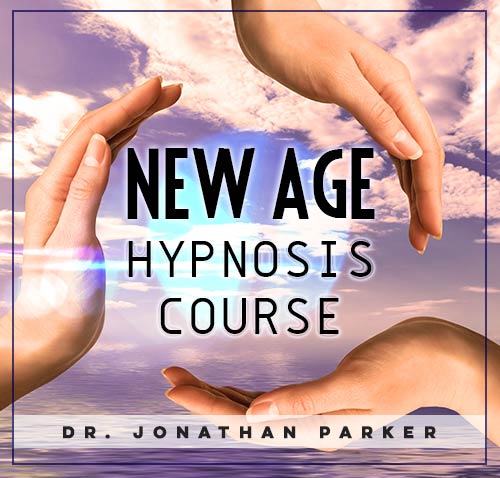Hypnosis and Mental Health

Looking for more amazing products? Check out our online store and explore our collection here! Happy shopping!
Before diving in, please note: This post is for informational purposes only. If you’d like to know more about how we approach topics, feel free to check out our friendly Disclaimer Page.
Hey there, amazing readers! 
We’re committed to delivering quality posts, and your support (even just sticking around despite the ads) means everything to us. So, bear with us, and thanks for helping us keep the good vibes rolling. Now, on to the fun stuff!
TRANSLATE BUTTON AT THE END OF THE ARTICLE
A Quick Overview
Hypnosis and mental health have a long-standing relationship, with hypnotherapy being recognized as a valuable tool in addressing various psychological issues.
Hypnosis involves inducing a trance-like state in which an individual is more open to suggestion.
This altered state of consciousness can be used to promote relaxation, focus, and introspection, making it a powerful adjunct to traditional therapy.
In this article, we will delve into the role of hypnosis in mental health, exploring its benefits, applications, and potential risks.
Whether you’re struggling with anxiety, depression, PTSD, or other mental health challenges, hypnotherapy may offer a unique approach to healing.
Understanding Hypnosis and Mental Health
Hypnosis is a therapeutic technique that aims to harness the power of suggestion to influence thoughts, feelings, and behaviors.
During a hypnotherapy session, a trained therapist guides the individual into a state of deep relaxation, often characterized by heightened suggestibility and focused attention.
While in this trance-like state, the individual is more receptive to positive suggestions that can help address underlying mental health issues.
It is important to note that hypnosis is not a form of mind control; rather, it is a collaborative process between the therapist and the individual seeking treatment.
The Benefits of Hypnotherapy for Mental Health
Hypnotherapy can offer a range of benefits for mental health conditions.
By accessing the subconscious mind, hypnosis can help individuals uncover and address the root causes of their psychological struggles.
This can lead to increased self-awareness, emotional healing, and behavior modification.
Hypnotherapy has been shown to be effective in reducing symptoms of anxiety, depression, and PTSD, as well as improving self-esteem and confidence.
Additionally, hypnosis can aid in stress management, promote better sleep, and enhance overall mental wellbeing.
How Hypnosis Can Improve Mental Wellbeing
One of the key ways hypnosis can improve mental wellbeing is by promoting relaxation and reducing stress.
When an individual is in a hypnotic state, the body’s stress response is dampened, leading to a sense of calm and tranquility.
This can be especially beneficial for individuals dealing with chronic stress or anxiety.
Furthermore, hypnosis can help individuals reframe negative thought patterns, develop coping strategies, and build resilience in the face of adversity.
By addressing deep-seated issues at the subconscious level, hypnotherapy can pave the way for lasting emotional transformation.
Addressing Anxiety and Stress with Hypnotherapy
Anxiety and stress are two common mental health issues that can significantly impact one’s quality of life.
Hypnotherapy offers a unique approach to addressing these challenges by targeting the underlying causes of anxiety and stress.
Through relaxation techniques, guided imagery, and positive suggestions, hypnosis can help individuals break free from the cycle of anxious thoughts and physical tension.
By tapping into the power of the subconscious mind, hypnotherapy can instill a sense of calm, control, and confidence in individuals struggling with anxiety and stress.
Overcoming Depression Through Hypnosis
Depression is a complex mental health condition that can be challenging to treat.
However, hypnotherapy has shown promise in alleviating symptoms of depression and enhancing overall emotional wellbeing.
By uncovering and reframing negative beliefs and thought patterns, hypnosis can help individuals break free from the grip of depression.
Additionally, hypnotherapy can promote feelings of hope, motivation, and self-compassion, which are essential for overcoming depression.
Through a series of targeted sessions, individuals can work towards creating a more positive and fulfilling life.
Using Hypnotherapy for PTSD Treatment
Post-traumatic stress disorder (PTSD) is a debilitating condition that can have a profound impact on an individual’s mental health.
Hypnotherapy can be a valuable tool in the treatment of PTSD, as it can help individuals process and integrate traumatic memories in a safe and supportive environment.
By working with the subconscious mind, hypnosis can reduce the intensity of traumatic memories, alleviate distressing symptoms, and promote healing.
Through a combination of relaxation techniques, visualization, and cognitive restructuring, individuals can find relief from the lingering effects of trauma and move towards a brighter future.
Hypnosis as a Tool for Managing Phobias
Phobias are intense, irrational fears that can disrupt a person’s daily life and wellbeing.
Hypnotherapy can be an effective tool for managing phobias by addressing the underlying fears and associations that fuel these irrational reactions.
Through hypnosis, individuals can confront their phobias in a controlled and supportive environment, gradually desensitizing themselves to the feared objects or situations.
By reframing negative beliefs and responses, hypnotherapy can help individuals build confidence, resilience, and a sense of empowerment in the face of their fears.
This can lead to significant improvements in quality of life and emotional wellbeing.
Enhancing Self-esteem and Confidence with Hypnosis
Low self-esteem and confidence issues can hinder one’s ability to thrive and succeed in various aspects of life.
Hypnotherapy can be a powerful tool for enhancing self-esteem and confidence by targeting the subconscious beliefs and thought patterns that contribute to negative self-perception.
Through positive affirmations, visualizations, and cognitive restructuring, hypnosis can help individuals cultivate a strong sense of self-worth, self-acceptance, and self-belief.
By building a foundation of inner strength and positivity, individuals can unlock their full potential and lead a more fulfilling and empowered life.
Exploring the Link Between Hypnosis and Sleep
Sleep is essential for overall mental health and wellbeing, yet many individuals struggle with insomnia and sleep disturbances.
Hypnotherapy can be an effective approach to improving sleep quality by promoting relaxation, reducing anxiety, and enhancing sleep hygiene.
Through guided imagery, deep breathing exercises, and hypnotic suggestions, individuals can enter a state of deep relaxation conducive to falling asleep and staying asleep.
By addressing underlying stressors and negative thought patterns that may be disrupting sleep, hypnosis can help individuals achieve restful and rejuvenating sleep, leading to improved mental clarity, mood, and overall wellbeing.
Hypnotherapy for Coping with Grief and Loss
Grief and loss are natural parts of the human experience, but they can be incredibly challenging to navigate.
Hypnotherapy can offer a supportive and healing space for individuals to process their grief, find closure, and move towards acceptance and healing.
By working with the subconscious mind, hypnosis can help individuals release emotional pain, guilt, and regret associated with loss.
Through visualization, guided imagery, and emotional catharsis, individuals can experience a profound sense of peace, connection, and healing.
Hypnotherapy can also help individuals build resilience, coping skills, and a renewed sense of purpose after experiencing loss.
Potential Risks and Limitations of Hypnosis
While hypnosis can be a valuable tool for mental health, it is important to be aware of potential risks and limitations.
Some individuals may be more susceptible to false memories or suggestibility under hypnosis, which can lead to unintended consequences.
Additionally, hypnosis may not be suitable for individuals with certain mental health conditions, such as psychosis or severe personality disorders.
It is crucial to work with a qualified and experienced hypnotherapist who can ensure safe and effective treatment.
As with any therapeutic approach, hypnosis should be used as part of a comprehensive treatment plan tailored to the individual’s needs and goals.
Integrating Hypnosis into Mental Health Care
Integrating hypnosis into mental health care can offer a holistic and personalized approach to healing.
By combining hypnotherapy with traditional therapy modalities, individuals can access a deeper level of insight, healing, and transformation.
Hypnosis can be used as a complementary treatment for a wide range of mental health issues, including anxiety, depression, PTSD, phobias, and more.
Working collaboratively with a skilled hypnotherapist, individuals can uncover hidden barriers to growth, release negative patterns, and cultivate positive change in their lives.
Through a tailored and integrated approach, hypnosis can unlock the potential for lasting healing and emotional wellbeing.
Conclusion
In conclusion, hypnosis is a powerful tool for enhancing mental health and wellbeing.
By tapping into the subconscious mind, hypnotherapy can address deep-seated issues, promote relaxation, reduce stress, and foster emotional healing.
Whether you’re struggling with anxiety, depression, PTSD, phobias, or grief, hypnosis can offer a unique and effective approach to healing.
By working with a qualified hypnotherapist and integrating hypnosis into your mental health care, you can unlock the potential for lasting transformation and empowerment.
Embrace the power of hypnosis to navigate your mental health journey with courage, resilience, and hope.

The Enlightenment Journey is a remarkable collection of writings authored by a distinguished group of experts in the fields of spirituality, new age, and esoteric knowledge.
This anthology features a diverse assembly of well-experienced authors who bring their profound insights and credible perspectives to the forefront.
Each contributor possesses a wealth of knowledge and wisdom, making them authorities in their respective domains.
Together, they offer readers a transformative journey into the realms of spiritual growth, self-discovery, and esoteric enlightenment.
The Enlightenment Journey is a testament to the collective expertise of these luminaries, providing readers with a rich tapestry of ideas and information to illuminate their spiritual path.
Our Diverse Expertise
While our primary focus is on spirituality and esotericism, we are equally passionate about exploring a wide range of other topics and niches 

To ensure we provide the most accurate and valuable insights, we collaborate with trusted experts in their respective domains 
Our blog originally focused on spirituality and metaphysics, but we’ve since expanded to cover a wide range of niches. Don’t worry—we continue to publish a lot of articles on spirituality! Frequently visit our blog to explore our diverse content and stay tuned for more insightful reads.
Hey there, amazing reader! 
Check out our store here and take a peek at some of our featured products below! Thanks for being awesome!












